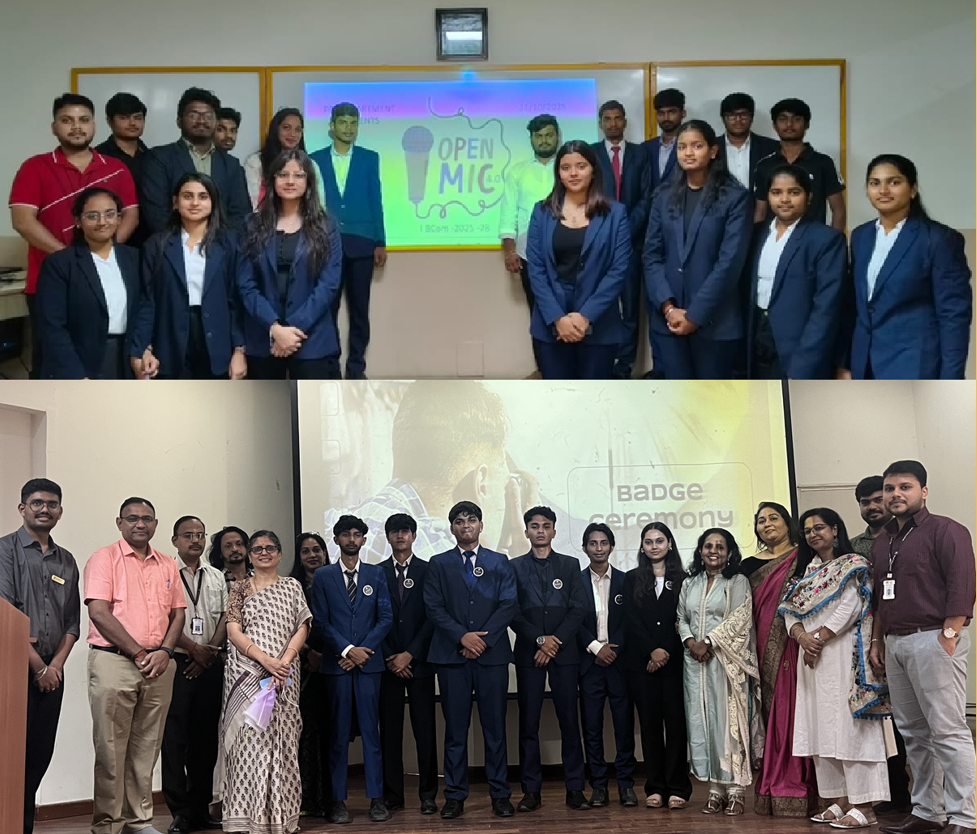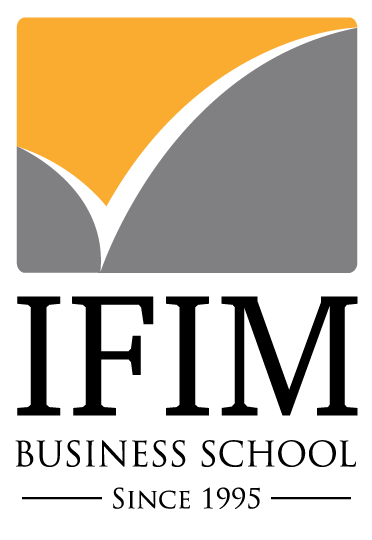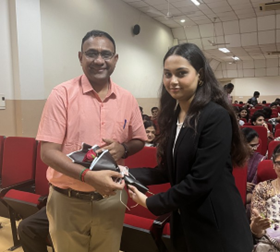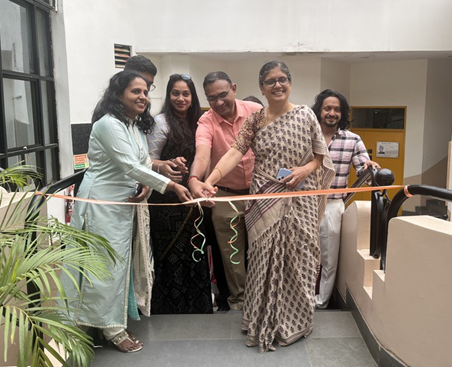|
Editorial Team
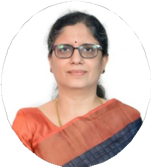
EDITORIAL ADVISOR
DR SRIDEVI V
DIRECTOR
IFIM College
|
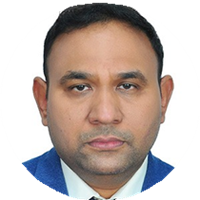
EDITORIAL ADVISOR
Dr A M SAKKTHIVEL
DEAN
IFIM COLLEGE
|
|

EDITOR
DR FREDRICK RUBAN A
Assistant Professor of English
Department of Languages
|

STUDENT EDITOR
(GUEST)
PUSHKAR
BBA (2025- 2028)
|
|
|
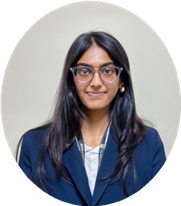
STUDENT EDITOR
ADITI RAO
BBA (2024 - 2027)
|
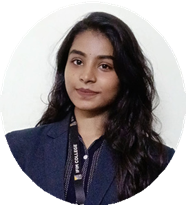
WRITER
PANCHAMI
BBA (2024 - 2027)
|

REPORTER
JAYASHREE
BBA (2024 - 2027)
|

REPORTER
KARTHIK JOSHI
BBA (2024 - 2027)
|
| TECHNICAL TEAM |
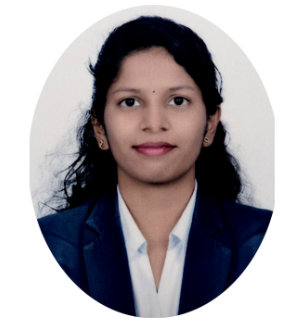 |
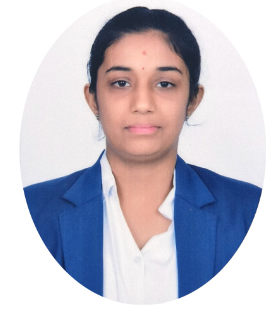 |
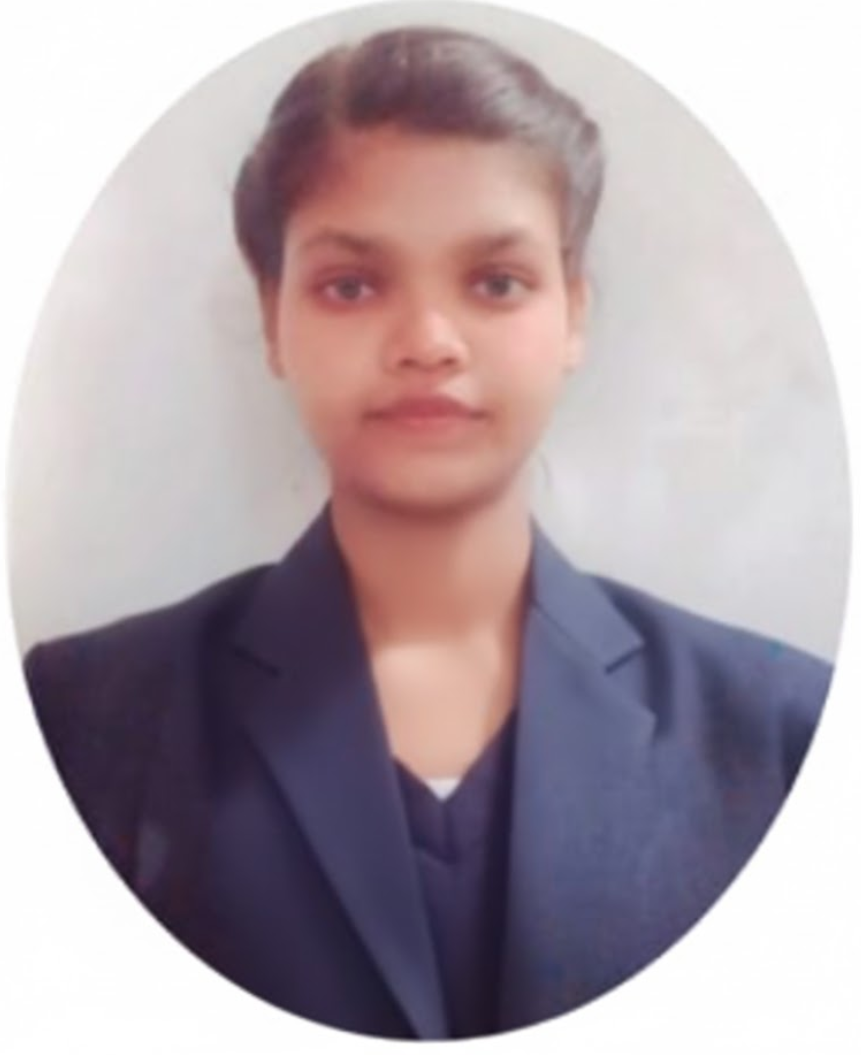 |
MAITREYEE
BCA (2023 - 2026) |
SRI LAKSHMI
BCA (2023 - 2026) |
MEENU KUMARI
BCA (2023 - 2026) |
| CAMPUS INSIGHT |
|
1. Finance Club Workshop
|
|
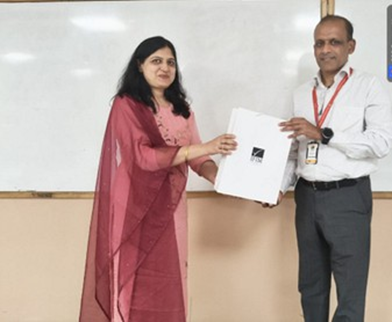
On Thursday, 30th October 2025, IFIM College hosted a high-impact guest lecture titled “Investment Banking Demystified” in Room BF3. Conducted by Mr. Babu Seshiah, a seasoned investment banking professional with over 28
years of experience, the workshop brought together 92 participants including 45 MBA and 47 BBA/B.Com students for an immersive learning experience.
Mr. Babu, known for his expertise in capital markets, corporate finance, and structured products, has held senior roles in leading global and Indian financial institutions. His session was designed to bridge academic theory with real-world financial practice, offering students a rare opportunity to learn directly from an industry expert.
The Investment Banking Fundamentals program introduces students to the core structure of capital markets and corporate finance. It simplifies complex topics like derivatives, IPOs, and bond issuance through real-world case studies such as the Adani Green Energy Bond Issue, the Ola Electric IPO, and the HDFC Bank merger. It also highlights career pathways and key skills essential for success.
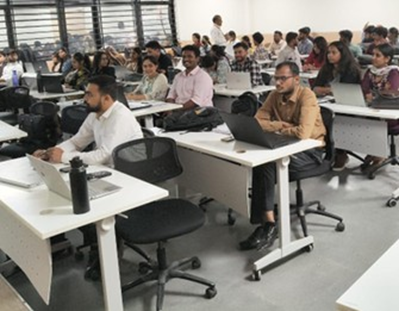
The Investment Banking Fundamentals program introduces students to the core structure of investment banking, offering global insights into IPOs, bond issuance, and key regulatory frameworks like SEBI, RBI, SEC, and ESMA. It simplifies complex topics such as M&A, valuation, and derivatives through practical examples, while also exploring emerging trends in AI, fintech, and ESG investing. The program further guided students on career pathways and certifications like CFA and FRM.
|
|
2. Photography Club Inauguration
On Thursday, 16th October 2025, the College Auditorium buzzed with excitement as students and faculty gathered for the official inauguration of the Photography Club a new initiative aimed at nurturing
visual storytellers and creative thinkers across campus. With its lens now focused on future events, the Photography Club looks forward to capturing stories, perspectives, and moments that define campus life.
The Director Dr. Sridevi V delivered an insightful address on the evolving role of photography in today’s visually driven world, encouraging students to capture moments that speak louder than words. Dr. A. M. Sakkthivel, Dean of IFIM College, followed with a message on the importance of creative expression and student-led initiatives that bridge academics with real-world skills.
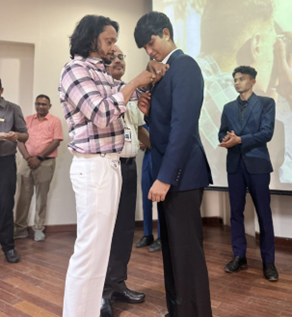
|
The event also featured a brief presentation outlining the club’s vision, from photo walks and competitions to
workshops and exhibitions. A short exhibition of student photographs added a personal touch, earning appreciation from attendees and showcasing the talent already present within the institution. A highlight of the day was the Badge Ceremony, where core team members were honored on stage with badges symbolizing their leadership and commitment.
|
The moment was filled with pride and applause as each member stepped forward:
- Prabhas Varma – President
- Ayush Kumar – Vice President
- Rohith Bharti – Creative Head
- M. Mubaarak – Event Coordinator
- Nidarssh Reddy – Photographer
- Nandani Singh – Documentation Head
- Prof. Bovina S – Faculty In-Charge
|
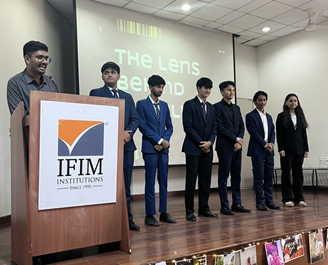 |
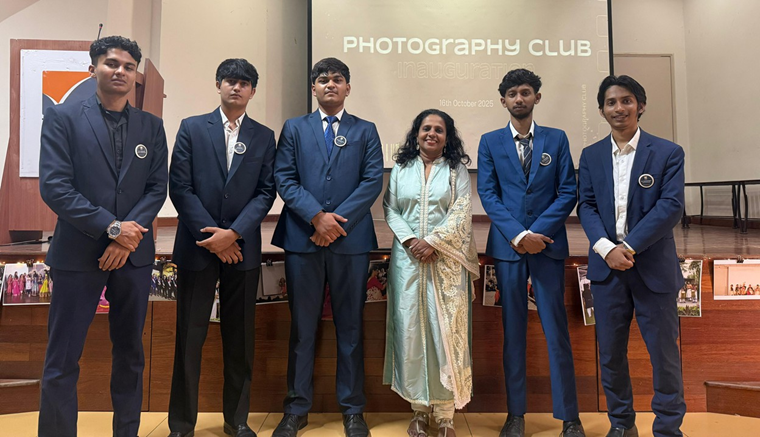
Organised under the mentorship of Prof. Bovina, Assistant Professor, Department of Personality Enhancement Programme, the inauguration marked a successful beginning for the club. The event concluded with a heartfelt vote of thanks, celebrating the collective effort that brought this creative platform to life. With its lens now focused on future events, the Photography Club looks forward to capturing stories, perspectives, and moments that define campus life.
3. Skillathon 2025: Sharpening Minds for the Corporate Arena
On Tuesday, 28th October 2025, the School of Technology at IFIM College hosted Skillathon 2025, a dynamic session tailored for final-year BCA students (Section A). Held in Room No. BS21, the event focused on building essential career skills in Strategy Making, Group Discussion (GD), and Personal Interview (PI) all critical for placement success and professional growth.
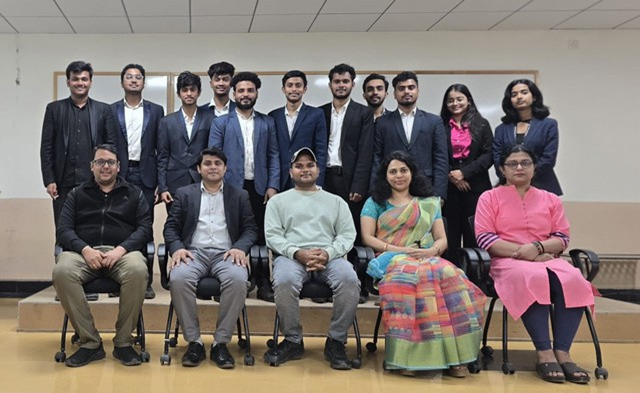
The session was led by Mr. Jeeva Prakash from Oracle, whose industry experience and engaging delivery brought fresh perspective to the classroom. Through practical insights on communication, analytical thinking, and corporate readiness, Mr. Prakash empowered students to approach interviews and group discussions with confidence and clarity.
Organized by Prof. Sinzy Silvester, Skillathon 2025 reflected IFIM’s commitment to bridging academic learning with real-world preparation. Students actively participated in mock GDs, strategic exercises, and interview simulations, gaining valuable feedback and refining their approach. The event was a resounding success, leaving students energized and better equipped to navigate the challenges of campus placements and beyond.
|
|
|
1.BBA vs BCA Debate Sparks Ideas and Insight
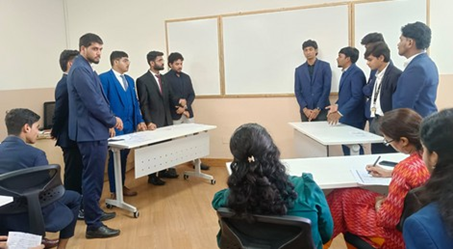
On October 30, 2025, an exciting inter department debate competition was held between the BBA and BCA ‘B’ sec 3rd semester students. The event, organised by
Prof. Bovina, followed the Parliamentary Debate Format, which made the session lively, interactive, and engaging.
The jury panel for the competition comprised Prof. Bovina Arunan and Prof. Vandana Srivastava, who evaluated the participants based on content, delivery style, time management, structure, and team collaboration. The students from both departments displayed exceptional communication skills, confidence, and critical thinking. Each team presented strong arguments, effectively use parliamentary elements such as points of information and rebuttals, and maintained a respectful yet competitive spirit throughout the event. .
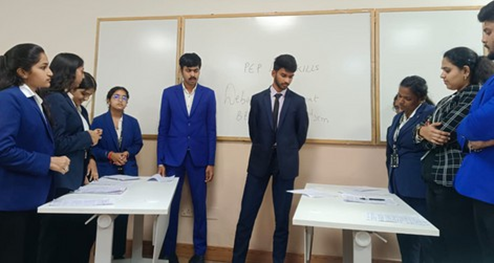 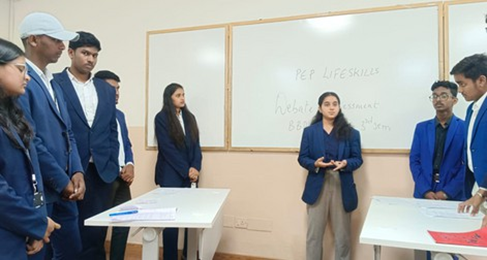
The judges appreciated the participants for their clarity, teamwork, and enthusiasm. The session not only enhanced the students’ debating abilities but also encouraged leadership, coordination, and analytical thinking. Overall, the event was a grand success and reflected the vibrant academic culture of the institution..
|
|
|
2. Inter-Department PEP Challenge: BCom vs BCA
On Thursday, 30th October 2025, the Department of PEP hosted a debate competition between the III semester students of BCom and BCA, organised as part of the PEP Examination. The event was coordinated by Prof. Shalini.
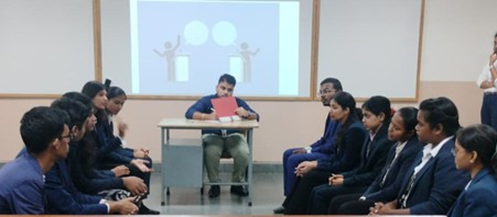
The objective of the event was to assess students’ practical knowledge, communication skills, and analytical thinking in a real-time learning environment. Participants from both departments presented compelling arguments, backed by logic, facts, and confident delivery. The debate followed a structured format, with judges evaluating students on content, clarity, presentation, rebuttal, and teamwork. The audience remained engaged throughout, enjoying the lively exchanges and thoughtful perspectives.
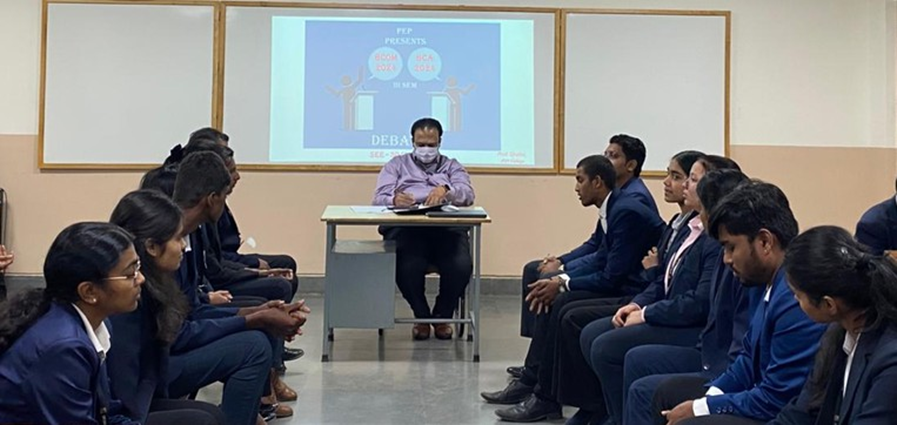
The judging panel Dr. Fredrick, Prof. Sheshachalam, and Prof. Shalini praised the participants for their clarity, confidence, and presentation style. They also offered constructive feedback and tips for improvement, helping students refine their communication and critical thinking skills.
|
|
3.Open Mic Evening 4.0: Where Voices Found Their Stage
On October 29th, 2025, the PEP Department hosted Open Mic Evening 4.0 a vibrant celebration of creativity, confidence, and connection. Held at the college auditorium, the event offered MBA students a platform to express themselves beyond the classroom, through stories, performances, and personal reflections.
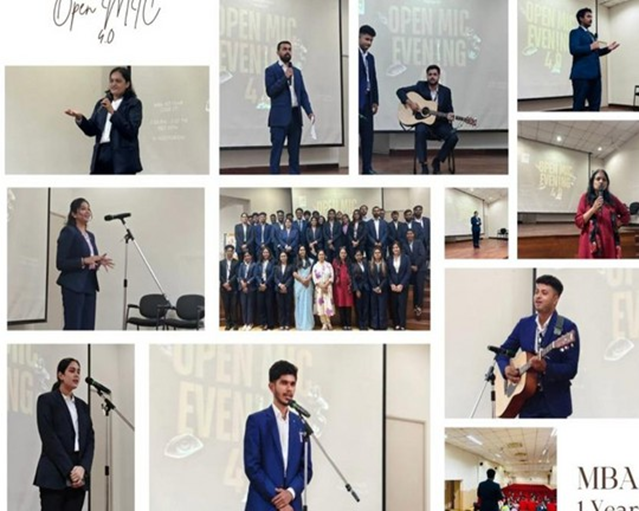
The evening unfolded with a rich tapestry of talent: soulful singing, evocative poetry, and
compelling speeches on themes like conflict management, self confidence, travel experiences, personal failure, growth. and Each performance resonated with authenticity,drawing applause and admiration from a supportive audience of peers and faculty.
Organized in an informal and encouraging setting, the event allowed students to showcase their communication and presentation skills while embracing vulnerability and courage. Faculty members and judges praised the participants for their creativity, clarity, and stage presence recognizing the importance of such platforms in shaping future leaders.
|
|
4. Students Showcase Talent at PEP Open Mic 4.0
An Open Mic event was held on 31st October 2025 for the BCom 1st semester students as part of their internal
examination. The event witnessed enthusiastic participation from the students, who showed their talents and creativity. The Open Mic provided a platform for students to express themselves freely, overcome stage fear, and connect with their peers in a supportive and joyful atmosphere. Overall, the event turned out to be an inspiring celebration of expression, talent, and togetherness.
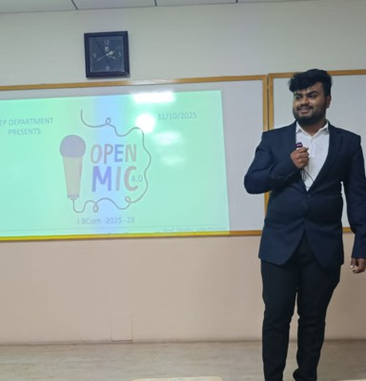
A distinguished panel of judges, Prof. Shalini and Dr. Fredrick,evaluated the participants based on their creativity, presentation, confidence, and overall performance. Students
performed various activities — Flute music, speeches, origami, yoga, reading stories, showcasing there talent and knowledge
sharing. The Open Mic event at IFIM was not just about performing — it was about discovering confidence, creativity, and connection. It reminded everyone that every talent, big or small, deserves appreciation.
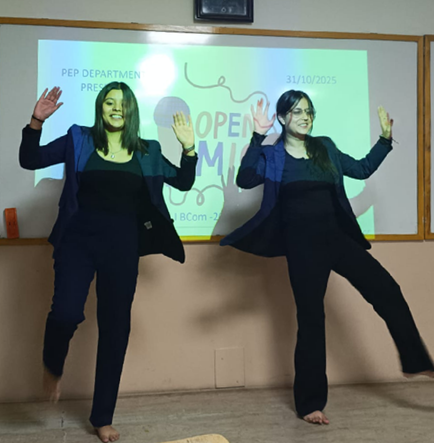
|
|
1. Proud Moment for IFIM: Abuzer K Secures First Prize in Badminton
MD. Abuzer K , a second-year BCA student from the School of Technology, IFIM College, brought home a proud victory at the Golden Cup 2025, held on 26th October at Golden Shuttlers Badminton Academy in collaboration with Pace Badminton Academy.
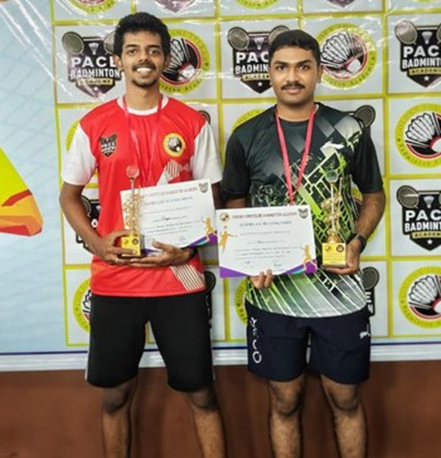
Competing in the Men’s Doubles category, Abuzer demonstrated focus, and athletic skill throughout the tournament. His consistent effort and passion for the sport led him to secure the first prize, marking a memorable milestone in his sporting journey. This achievement not only reflects Abuzer’s dedication and sportsmanship but also highlights IFIM’s growing presence in inter academy sports. His win stands as an inspiration to fellow students pursuing excellence both on and off the court.
|
|
“The Mirror at Dawn”
There is a sacred hour before the world awakes —
when silence breathes softly, and light drips gently through the window.
In that fragile space between night and day,
Riya meets herself.
The mirror knows her better than anyone.
It has seen her fears, her dreams,
and the quiet rebellion of silk and thread.
To the world, she is *Ritesh*, the tailor’s obedient child —
but here, beneath the hush of dawn,
she is Riya — radiant, trembling, real.
She drapes a dupatta over her shoulders,
one she stitched from leftover fabric,
the color of sunrise and courage.
It’s not just cloth — it’s her heartbeat,
her whisper to the universe:
“I am here.”
But freedom is fragile.
One morning, the door creaks open —
Mira stands there, wide-eyed, holding a spool of thread.
For a heartbeat, time stops.
Riya’s breath falters, expecting laughter, judgment,
a return to silence.
Instead, Mira smiles —
a small, unassuming act of grace —
and says,
“That color suits you more than anyone I know.”
In that moment, love becomes language,
acceptance becomes art.
Sisterhood weaves what the world tries to tear apart.
Together, they sew —
not just clothes, but courage.
Not just dreams, but identity.
When the fair arrives,
the town buzzes with chatter and colors —
and among the stalls and songs,
Riya steps out.
Not hidden.
Not half.
Whole.
The crowd stirs — whispers rise,
eyes turn like wind.
But the children smile — pure, unfiltered,
as if they see her as she truly is.
And for the first time,
the mirror isn’t her only witness.
The world reflects her too —
in sunlight, in laughter, in truth.
At dawn, she found herself.
By daylight, she was seen.
And somewhere in between,
she became free.
-Pratha Soni
BBA 3 Sem
|
|
ART
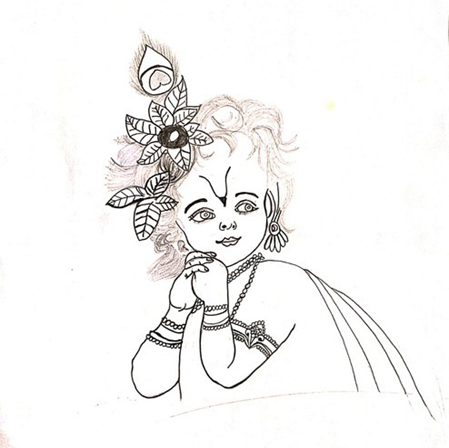
-Ananya. V
BBA 3 Sem
|
|

-pallavi M
BBA 3rd sem
|
|
Academic Excellence: Prof. Bovina Represents IFIM at Prestigious Conference
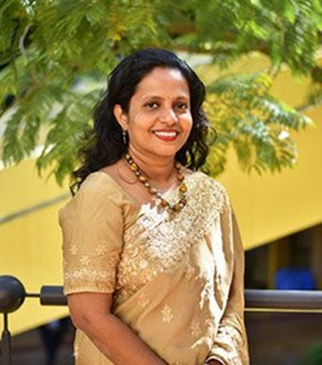
Prof. Bovina Arunan S from IFIM College proudly represented the institution at Synergies in Technology and Thought: An International Conference on Humanities and Management, hosted by Asian International University on October 3 and 4,
2025.
Presenting her paper titled “Classroom Behavioural Challenges Among Adolescents: Causes, Implications, and Interventions,” Prof. Bovina explored the complex dynamics of adolescent behavior in educational settings. Her research offered thoughtful analysis and practical strategies for educators, contributing meaningfully to the global dialogue on student engagement and classroom management. The conference brought together scholars and professionals from diverse fields, and Prof. Bovina’s participation highlighted IFIM’s commitment to academic excellence and thought leadership in education and management.
Congratulations to Prof. Bovina on this well-deserved recognition !
|
|
“From Coins to QR Codes: The Quiet Fade of Bohni”

Across India, small traders share a deeply rooted belief in the power of the first sale of the day—known as bohni. Though the term varies by region, the sentiment remains strikingly consistent. The term is referred to as बोहणी (Bōhaṇī) in Marathi, बोहनी (Bohni) in Punjabi, વહેલી વેચાણ (Vaheli vechan) in Gujarati, প্রথম িবি (Prothom bikri) in Bengali, முதல் வற்பைன (Mudhal virpanai) in Tamil, ಮೊದಲ ಾ ಾಟ (Modala maarata), మొదటి అమకం (Modati ammakam), and ਪਿਹਲਾ ਿਵਕਰੀ (Pailha vikri) in various other languages.
The early hours of a business day are referred to as "bohni time." It is believed that the first sale of the day sets the tone for the seller’s luck throughout the day. It would be good luck for the seller if the first prospective buyer of the day makes a purchase, and potentially bad luck for the day if the first prospective buyer walks away without making a purchase. This concept is deeply rooted in cultural and economic practices across India, and while the terminology may vary, the underlying sentiment is widely shared. In India, business and tradition go hand in hand, providing hope throughout the uncertain journey of entrepreneurship. In many Indian markets, especially among small vendors, the bohni is treated with great reverence. The following are the practices.
- Rituals and Beliefs: Bohni is typically made in cash, as it is believed to bring prosperity for the rest of the day. In some regions, people touch the bohni money to their eyes or even spit on it to ward off the nazar (evil eye). Some shopkeepers may choose not to sell inflammatory goods as their first transaction. For example matchbox sale may not be the first transaction.
- Customer Treatment: The first customer is often treated with extra warmth— offered a beverage, discounts, or freebies—to ensure that the sale is completed, similar to introductory offers for new products or services. Vendors typically do not bargain with their first customer of the day and maintain a peaceful approach without entering into an argument
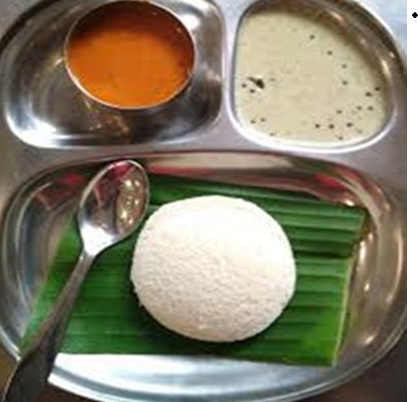
Business Strategy: Sellers may refuse to extend credit until a bohni is completed. Some businesses may refuse to conduct trial ransactions; for example, a restaurant might decline to serve a single idli or a half-plate of rice bath (pulav) during bohni time. Some business owners may ask individuals they
consider lucky charms to make the bohni. This tradition extends to the launch of new businesses, where initial purchases are often made by family and friends
The Advantages and Disadvantages of the Bohni Ritual
- The Bohni ritual effectively helps vendors avoid conflicts and risky transactions, fostering a sense of calm and clarity in their dealings. Furthermore, the participation of family and friends strengthens social bonds within the community.
- However, an overemphasis on the ritual can impede rational decision-making. Additionally, the refusal to accept UPI or credit payments during Bohni undeniably poses a challenge to the advancement of fintech in the market.
Fintech and Evolution of Bohni
- While fintech has streamlined transactions and expanded access, it has also redefined rituals like bohni, prompting vendors to adapt or reinterpret tradition in digital form. The adoption of fintech has eliminated the traditional practice of handling tangible cash transactions.
- In the early days of the Unified Payments Interface (UPI), vendors would still request physical money for the first transaction. However, this has changed; now, the "first sale" is simply a beep or notification, with no physical exchange or ritual involved. Additionally, the concept of "Bohni," which traditionally marked the start of the business day, has evolved. Payments can now occur at any hour, including midnight, which blurs the definition of a "first sale."
It’s fascinating to observe how fintech companies have developed strategies to digitise even the smallest vendors in India, helping them move away from the traditional Bohni practice. One notable example is PhonePe. In June 2019, PhonePe announced that its offline merchant base had grown to over 5 million across India.
To celebrate this milestone and encourage digital transactions, PhonePe introduced daily incentives for merchants, aligned with the traditional ritual of Bohni —the first transaction of the day. Merchants who completed their first daily transaction using the PhonePe QR code could earn incentives, potentially accumulating up to ₹1,400 per month

-Prof. Meera Govindaraj
Dept. of Management
|
|
Prof. Meera Govindaraj
Assistant Professor
|
Prof. Bovina Arunan
Area chair - PEP
|
Prof. Shalini
Assistant Professor
|
Prof. Nikhil
Faculty - MBA
|
|
Vikram Reddy
V Sem BCA
|
Jayashree K.
III Sem BBA
|
Panchami S
III Sem BCA
|
Abuzer
III Sem BCA
|
Dear Readers,
We’re thrilled to bring you a fresh and inspiring edition of The Catalyst! Your energy and enthusiasm keep us going as we strive to share stories and ideas that spark curiosity, challenge perspectives, and start conversations that matter. Every article and feature has been handpicked to inform, inspire, and connect with you.
Thank you for being such an important part of The Catalyst community—your
support and feedback fuel everything we do!
With gratitude,
The Editorial Team
The Catalyst invites contributions from students and faculty members for the "Creative Nexus" and "Critical Perspectives" columns, respectively. "Creative Nexus" accepts creative works such as verses, short fiction, and cartoons, whereas "Critical Perspectives" welcomes critical write-ups from faculty on current issues, with a word limit of 500–800 words. Kindly submit your contributions to catalyst@ifim.edu.in.
|
|
